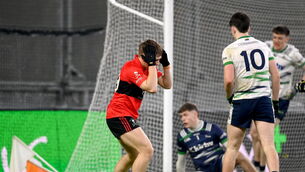GAA outline concerns over clock option

Despite being backed by Congress on two occasions, concerns raised in the initiative’s latest trial before Christmas convinced Central Council to propose the GAA’s highest governing body later this month shelve its introduction to Gaelic games despite its existence in ladies football.
It is the second U-turn Central Council have made on the clock/hooter after they parked Wexford club Clonard’s successful motion to have it implemented in 2010 on the grounds of costs. Earlier this month, Dublin manager Jim Gavin said he was “baffled” as to why there were reservations about it being introduced.













